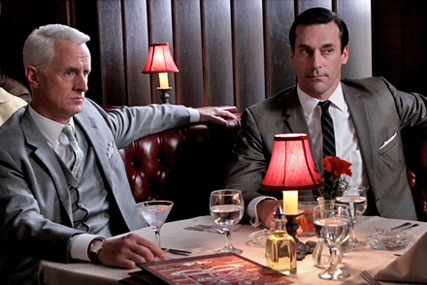Media just isn't as much fun as it used to be. And the legendary media lunch, where contacts were made and big deals scribbled on beermats, is in danger of extinction.
These whisperings are coming from the younger end of the media world, where agency planners are fed up with having to cancel important social engagements - even close friends' weddings - to spend their weekends working on all-consuming pitches.
One senior media executive observes: "Young people used to go into media because it looked exciting and the girls were pretty. But now the girls are pasty from overwork and everyone is too shattered to go to the pub at the end of a long day."
So is this winter of discontent just due to the recession, or is it part of a worrying, longer-term trend? It might seem gauche to ask this question when the media industry is in the final throes of a global economic crisis. But while the debate seems frivolous on the surface, there are serious concerns underpinning cultural change.
Adam Mills, managing director of outdoor media owner Admedia, recalls the days when he was a fresh-faced upstart. The lure of media was so great, he bust his gut to make sure he knew as much as he could about the industry and the key players within it.
He says: "Media had an image of fast cars, abundant parties, lovely women and glamour. Media owners used to have bigger budgets, and I remember going to cool launches hosted by the likes of FHM."
Mills realises he risks sounding superficial listing these considerations as career attractions, but his point is that he was extremely driven and motivated to do well in what he perceived to be a fun place to work.
He adds: "I knew about every big piece of business the top 30 agencies had because I was so focused on getting in. Today it feels as though young people are falling into media. The level of knowledge graduates often have would not have secured them a job when I started out."
Paul Phelps, managing director of AMS Media, started out in the heady 1980s and estimates the work hard/play hard ratio used to be 40/60, whereas now it is 80/20. "But today there is much more scope for being creative," he says. "If that wasn't there, I would leave the business." Steve Hatch, managing director of Mediaedge:cia, echoes his words, saying the industry may be "less fun" but it is "more enjoyable because it is more fulfilling".
This creativity must be safeguarded far more urgently than boozy media lunches, according to Matthew Hook, managing partner of strategy at Vizeum, who is troubled by "the failure to create opportunities for young people to catch their breath and express their individuality". He says: "Young people need more time to follow hunches, read interesting case studies and create ideas beyond the unexpected."
Preserving personalities
Senior figures fear the cost-cutting culture of procurement departments is stripping media of its character and artistry - they are concerned they will lose the big personalities and best grads if the pressure continues unabated. This also concerns HR professionals, such as Lara Roche, talent director at ZenithOptimedia, who has kept investing in the agency's social club, The Percy Club, throughout the recession so hard-working staff can let off steam.
She says: "Our staff survey has proved the strong culture here and sense of fun and camaraderie has buffered us against the worst effects of the recession. In the most recent survey, 82% of employees agreed that "although I work hard I also have fun".
Media Week did a straw poll of some the former winners of its 30 Under 30 talent competition, and found their expectations of "jollies" are far lower than their older counterparts, who remember when the grass was greener. Stories of having to cancel important social dates due to work were in the minority, although long hours were accepted by the majority as part and parcel of the job.
Those working in digital - where the 24/7 nature of the beast means more accountability - are most attuned to accepting the industry is no longer geared up to the jollies of old. Sally Mawby, head of digital at Feather Brooksbank, says: "We're trading over automated exchanges, not the kitchen table. The search engines know they will make it onto your schedule anyway, so there has never been a need for them to treat you to lunch and a bottle of wine."
While Mawby is unbothered by the slow death of the media lunch, she's keen to ensure the industry keeps the "media camaraderie that is so often best built up in the boozer". The difference today is that the boozer is more likely to be a karaoke club than a trendy champagne bar, and breakfast is the new media lunch. As MEC's Hatch says: "Just check out Charlotte Street Hotel any morning and you'll see it's like a 'media common room'."
As Dan Whitmarsh, associate director at MediaCom, ponders the question of whether media is less fun, he reflects on the fact that he sits in an office wearing trainers and a T-shirt, surrounded by funny photos and peculiar inflatable objects. "Yet I work for a company with a proper appraisal and development structure, health insurance and a pension scheme.
"Could I earn more money by working in an anodyne grey drone-hive? Yes. Could I have more fun working for a fragile start-up in Shoreditch with lots of ironic haircuts? Probably. All things considered, I'm pretty happy with my balance. True, there are fewer parties than there used to be - but if we're honest with ourselves, don't those things pall after a while anyway?"


